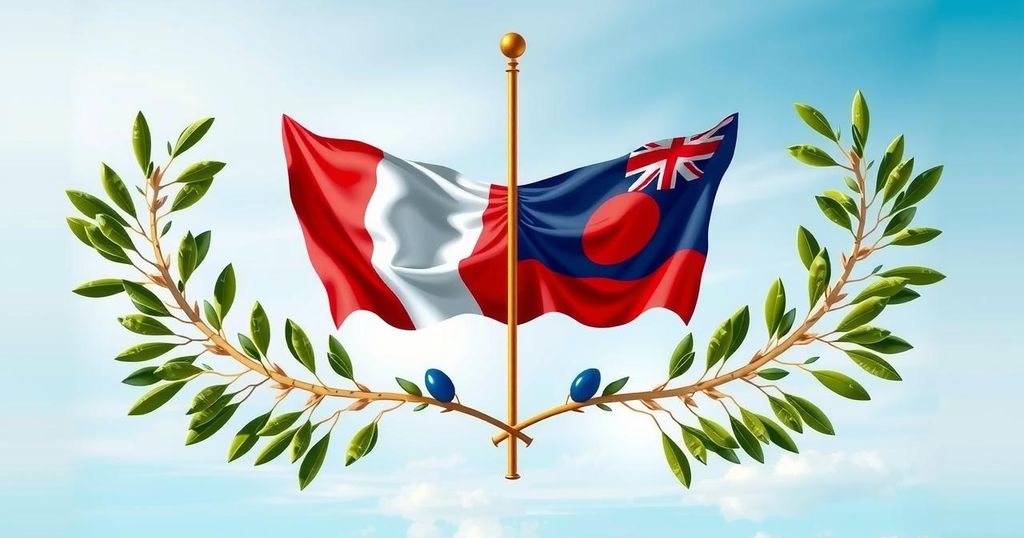Global news
AFRICA, ANGOLA, ASIA, CONFLICT RESOLUTION, CONGO (KINSHASA), COUP, DEMOCRATIC REPUBLIC OF THE CONGO, DR, DR CONGO, DRC, EASTERN DRC, EUROPEAN UNION, FELIX TSHISEKEDI, INTERNATIONAL RELATIONS, KAGAME, KINSHASA, LUANDA, M23, MILITARY COUP, NORTH AMERICA, PAUL KAGAME, QATAR, REGIONAL COOPERATION, RWANDA, SHEIKH TAMIM BIN HAMAD AL THANI, TAM, TINA SALAMA, TSHISEKEDI, UNITED STATES
Marcus Li
0 Comments
Ceasefire Talks Held in Qatar Between Rwanda and DRC Presidents
The presidents of Rwanda and DR Congo met in Qatar for ceasefire talks after failed negotiations in Angola. They expressed a commitment to an immediate cessation of hostilities and recognized the need for direct political dialogue to address the underlying causes of conflict in Eastern DRC. The agreement follows tensions escalated by the M23 group’s actions and international sanctions.
The presidents of Rwanda and the Democratic Republic of the Congo (DRC) recently engaged in surprise ceasefire discussions in Qatar shortly after unsuccessful peace talks in Angola. Rwandan President Paul Kagame and DRC President Felix Tshisekedi met with Qatar’s Emir Sheikh Tamim bin Hamad Al Thani to express their support for an immediate ceasefire following escalating tensions in the eastern DRC, primarily attributed to aggressive actions taken by the Rwanda-backed M23 armed group.
During the meeting, the leaders reaffirmed their commitment to an unconditional ceasefire, aligning with agreements made at a recent African summit. The meeting was deemed “fruitful” and contributed to reinforcing confidence in fostering security and stability in both the DRC and the region. Additionally, the leaders emphasized the necessity of initiating direct political dialogue to tackle the root causes of ongoing conflicts in Eastern DRC.
The Rwandan presidency confirmed that President Kagame believes collaboration among all parties can expedite progress towards peace. Following the undisclosed nature of the talks until Tshisekedi’s return to Kinshasa, the DRC’s presidential spokesperson announced via social media that an immediate ceasefire had been agreed upon, with implementation details to be finalized in the near future.
Earlier in the day, peace negotiations in Angola were abruptly canceled after the M23 withdrew from discussions, citing sabotage from certain international institutions, particularly due to European Union sanctions. The M23 organization contended these sanctions hindered productive dialogue.
The ongoing conflict involving the M23, which has claimed significant territory and numerous lives since January, has drawn international scrutiny. While the group asserts it represents Congolese Tutsi interests, a United Nations report accused Rwanda of exercising control over the M23, suggesting military support. While Rwanda has denied these allegations, it claims to face threats from the DRC-based FDLR, which comprises Hutu leaders linked to the 1994 Rwandan genocide. The last dialogue between the Congolese government and the M23 occurred in 2013.
The recent ceasefire talks between the presidents of Rwanda and the DRC signify a crucial step toward stabilizing a volatile region plagued by conflict. The discussions, spurred by failed negotiations in Angola and escalating violence from the M23 group, underscore the importance of direct dialogue to resolve underlying issues. The agreed ceasefire, if effectively implemented, may foster a more secure future for both nations and the broader region.
Original Source: www.hindustantimes.com




Post Comment